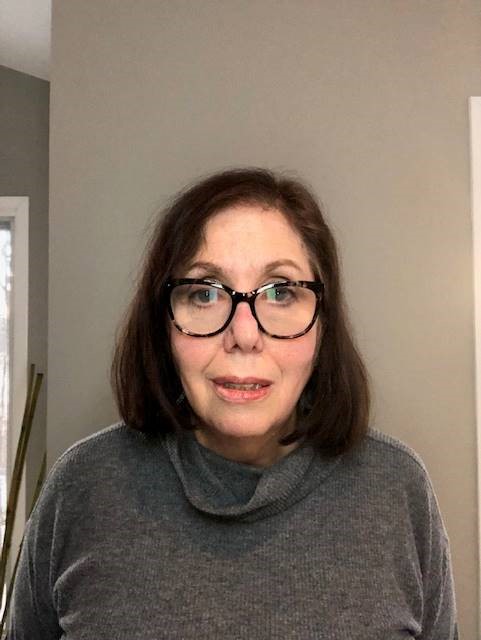
This blog is adapted from a women’s empowerment event focused on the gender wage gap at Temple Rodef Shalom in Vienna, Virginia.
2019 – Next year we will celebrate the centennial of the passage of the 19th Amendment that gave women the right to vote. Today, women are graduating from college and earning advanced degrees at a higher rate than males. We have women role models in prestigious jobs including a significant increase of women in Congress. And since 2016, women in the military have served in combat. Yet, the Equal Rights Amendment that was introduced by Alice Paul in 1923 and passed in Congress in 1972 still has not been ratified by the required number of states (one more is needed, and important work is being done in Virginia right now to be that state). Men and women do not have equal protection under the law. In fact, according to the late Honorable Justice Scalia, the Constitution as written, does not bar sex discrimination. This discrimination is most visible in the workplace and the basis of our discussion today.
Before we get started, I would like to recognize some people in the audience. Our senior Rabbi Amy Schwartzman. Rabbi Schwartzman is currently co-chairing the Central Conference of American Rabbi’s three-year Task Force on the Experience of Women in the Rabbinate commissioned to investigate gender equality. Rabbi Jeffrey Saxe. Rabbi Saxe is a leader in our community for interfaith social justice. Bernice Porrazzo and Mary Ann Kennedy, co- Presidents of Women of Temple Rodef Shalom. And Anne Moline, part of the Davidson family whose generosity sponsored this program through the Carol Davidson Endowment for the Advancement of Women.
As the namesake of this Endowment, Carol sought an outlet for her civic interests at a time when men dominated the rosters of mainstream community leadership. She found that in the National Council of Jewish Women and the League of Women Voters—women of fierce intelligence, with a belief in the power of civic engagement and a growing awareness of society’s gender inequities, who drew strength from each other, lending their collective voice to what came to be known as the women’s movement. This program honors her spirit.
Before we get to the program, I’d like to explain why hosting a program on gender pay equity was so important to us. Like all the faith denominations represented in this room and beyond, Judaism teaches us about compassion, justice, fairness, and equality. We are encouraged to work with the greater community to “repair the world” or practicing tikkun olam. To this end, the Women of Reform Judaism has vowed to champion a number of social justice issues and gender pay equity is a top priority. You see, although the Reform Movement has passed numerous resolutions since 1983 against wage discrimination, recent studies showed that compensation within their own institutions was closely aligned with other national findings. This is not acceptable. They, with all the other organizations within the Reform Movement, began an initiative that will help create a toolkit for best practices in hiring and equal compensation. By approaching the issue of pay equity in a multi-pronged, systemic, and integrated manner, by increasing awareness, and by changing the systems that have allowed this inequity to flourish, they hope to bring economic justice to working women first within their own institutions and then shared with others to do the same. I am proud to say that our Temple Rodef Shalom is a pilot program in that effort.
Today, we have an opportunity to begin a conversation about women’s equality in the workplace, in society, and in our personal lives to ensure that the next generation of women will not face the same injustices women face today. Just like in the Reform Movement, I suspect that many businesses that feel they are progressive and just, don’t really know the realities in their own workplace. I also believe that many women, from those in my own generation to millennials, don’t think this issue affects them. I suspect those perceptions will change after today’s program. And if you are one of the lucky ones where this isn’t an issue, it is probably affecting a family member, friend, or someone you know casually. It affects women in all jobs and professions, all religions and races, and at all economic levels, although more severe for women of color. It is personal and it is personal for me.
Equal Pay Day marks the extra time a woman needs to work to earn the same amount men earned in a previous secular year. April 2nd date is designated “All Women’s Equal Pay Day,” reflecting the average for all women to bridge the wage gap. However, there are other notable Equal Pay Days, breaking down the wage gap by subgroups: March 5, 2019, Asian American Women’s Equal Pay Day; April 19, 2019 White Women’s Equal Pay Day; August 22, 2019, Black Women’s Equal Pay Day; September 23, 2019, Native Women’s Equal Pay Day; November 20, 2019, Latinas’ Equal Pay Day. We must acknowledge our individual privileges as we continue this fight towards equality.
Here is the cliff note version of my own experience. Mid-career, I started working for an entrepreneurial company for a wage beneath my experience and ability to be part of something I believed in and stock options. Those stock options were key to my fair compensation. Our team, men and women working hard together, had much success. So much success that the board brought in new executive management better suited to the growing operational needs of our company. Things changed dramatically. I was given more responsibility without promotion, additional compensation or enough staff to handle the additional workload. Although my male counterparts seemed to not work the consistent late hours I did, when their departments fell behind, I was ordered to come in on weekends to “help” them. If I resisted saying I had already put in 50-60 hours that week I was told that only women put their family before the greater good of the company.
Our top tier management was all male and business was conducted on the golf course and the “19th” hole. I was never invited and therefore was not part of key discussions and decision making. When I got pregnant my physical changes were often discussed inappropriately and publicly, even in the middle of important presentations. To prepare for my maternity leave, they split my job between three other managers – I was a director – and one of them, a young man, who did a third of my job was given my corner office and received compensation greater than what I was earning. However, I knew that our company was changing from a privately held to a stock traded company and positioning itself for a buyout. All the hard work and humiliation would finally be compensated through the value of my stock options. The board had put together a generous distribution for that year and I knew the work of my departments was key in getting us to that point. I was not prepared for what happened next. There were seven directors, of which only two, including me, were women. The other woman and I had worked there for more than seven years and built the company from the ground up. Most of the men were new. Yet all the men got promoted to senior directors while Margaret and I remained directors. The discrepancy of distributed stock options between those two levels was huge. It was only then that I realized the full impact of wage and workplace discrimination based on my gender. I was angry and it was unfair but I know in hindsight that I was luckier than many women. The value of my original stock options increased many times over and my income, combined with that of my husband’s, allowed us to raise a family and maintain a comfortable lifestyle. This is not true for many families at a lower end of the economic scale, particularly minority families and single mothers.
This happened almost a quarter of a century ago. Our speakers will now let us know how much progress, we as women have made and what we can do to close the wage gap.
Andrea Stillman is a WRJ Board Member and the Vice President of Fundraising and Development for WRJ Mid-Atlantic District. She is also spearheading the pilot program at her congregation as part of the Reform Pay Equity Initiative.
Related Posts

Continuing to Educate and Empower People Together

My Challah-Making Experience


